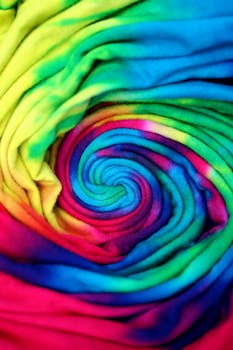+17162654855
+17162654855
IMR Publication News serves as an authoritative platform for delivering the latest industry updates, research insights, and significant developments across various sectors. Our news articles provide a comprehensive view of market trends, key findings, and groundbreaking initiatives, ensuring businesses and professionals stay ahead in a competitive landscape.
The News section on IMR Publication News highlights major industry events such as product launches, market expansions, mergers and acquisitions, financial reports, and strategic collaborations. This dedicated space allows businesses to gain valuable insights into evolving market dynamics, empowering them to make informed decisions.
At IMR Publication News, we cover a diverse range of industries, including Healthcare, Automotive, Utilities, Materials, Chemicals, Energy, Telecommunications, Technology, Financials, and Consumer Goods. Our mission is to ensure that professionals across these sectors have access to high-quality, data-driven news that shapes their industry’s future.
By featuring key industry updates and expert insights, IMR Publication News enhances brand visibility, credibility, and engagement for businesses worldwide. Whether it's the latest technological breakthrough or emerging market opportunities, our platform serves as a bridge between industry leaders, stakeholders, and decision-makers.
Stay informed with IMR Publication News – your trusted source for impactful industry news.
Energy

Psychedelic Sixties: Hippies, Hubris, and the Enduring Legacy of the Counterculture
The 1960s: a decade of unprecedented social upheaval, revolutionary music, and the burgeoning counterculture movement fueled by psychedelic drugs. This era, often romanticized as a period of peace, love, and free expression, also harbors a complex legacy marked by both idealism and disillusionment. Examining the impact of psychedelic drugs on the hippie movement reveals a story of utopian aspirations, unchecked ambition, and enduring consequences that continue to resonate today. Keywords: 1960s counterculture, psychedelic drugs, hippie movement, LSD, Timothy Leary, drug culture, 60s history, social change.
The early 1960s witnessed the rapid spread of psychedelic drugs, primarily LSD (lysergic acid diethylamide) and psilocybin mushrooms. Fueled by figures like Timothy Leary, who famously urged people to "turn on, tune in, drop out," these substances were perceived by many as tools for expanding consciousness, fostering creativity, and challenging societal norms. This coincided with growing anti-war sentiment, racial injustice protests, and a widespread questioning of traditional values. Keywords: LSD history, psilocybin, Timothy Leary quotes, counterculture movement history, 1960s drugs.
The hippie movement, inextricably linked to the psychedelic experience, embraced a utopian vision of peace, love, and communal living. Hippies sought to create alternative communities based on shared resources and a rejection of materialistic values. This idealism was fueled by the belief that psychedelic drugs could unlock human potential and foster empathy and understanding between people. Keywords: hippie culture, 1960s fashion, hippie lifestyle, communal living, peace movement.
However, the psychedelic revolution was not without its darker aspects. The unchecked proliferation of LSD and other drugs led to a range of negative consequences, including mental health issues, addiction, and social dysfunction. The unregulated nature of the drug trade often led to exploitation and violence. Furthermore, the initial idealistic fervor of the movement gradually succumbed to internal conflicts and disillusionment. Keywords: LSD side effects, drug abuse, psychedelic drug dangers, counterculture disillusionment, 60s drug culture problems.
Leary and other proponents of psychedelic drugs presented them as a panacea for societal ills, promoting a form of religious or spiritual evangelism. This approach, while attracting many followers, also ignored the potential dangers of these substances and the complexity of human experience. The hubris of believing that a single substance could solve all of society's problems ultimately contributed to the movement's decline. Keywords: Timothy Leary influence, psychedelic religion, drug evangelism, counterculture failures.
Despite its complexities and contradictions, the psychedelic 1960s left an indelible mark on Western culture. The counterculture movement challenged established power structures, fostered artistic innovation, and helped to shape environmental and social justice movements. The legacy of the era continues to be debated and reinterpreted, with ongoing discussions about the benefits and risks of psychedelic substances and their role in personal and societal transformation. Keywords: psychedelic renaissance, modern psychedelic therapy, 60s influence on music, counterculture legacy, impact of the 60s.
Today, there's a renewed interest in psychedelic research, with studies exploring the potential therapeutic uses of substances like psilocybin and LSD for treating conditions such as depression, anxiety, and addiction. This renewed interest highlights the ongoing tension between the utopian aspirations of the psychedelic 1960s and the ethical considerations surrounding the use of these potent substances. Keywords: psychedelic therapy, psilocybin therapy, LSD therapy, mental health treatment, ethical considerations psychedelic drugs.
Conclusion:
The psychedelic 1960s remain a fascinating and complex period in history, a testament to both the transformative power of human ideals and the limitations of utopian visions. By examining the intersection of hippie culture, psychedelic drugs, and the challenges of societal change, we gain a deeper understanding of the enduring legacy of this pivotal decade and its ongoing relevance in the 21st century. The story of the 1960s serves as a cautionary tale and a source of inspiration, reminding us of the importance of both idealism and critical thinking in navigating the complexities of social change and personal growth.